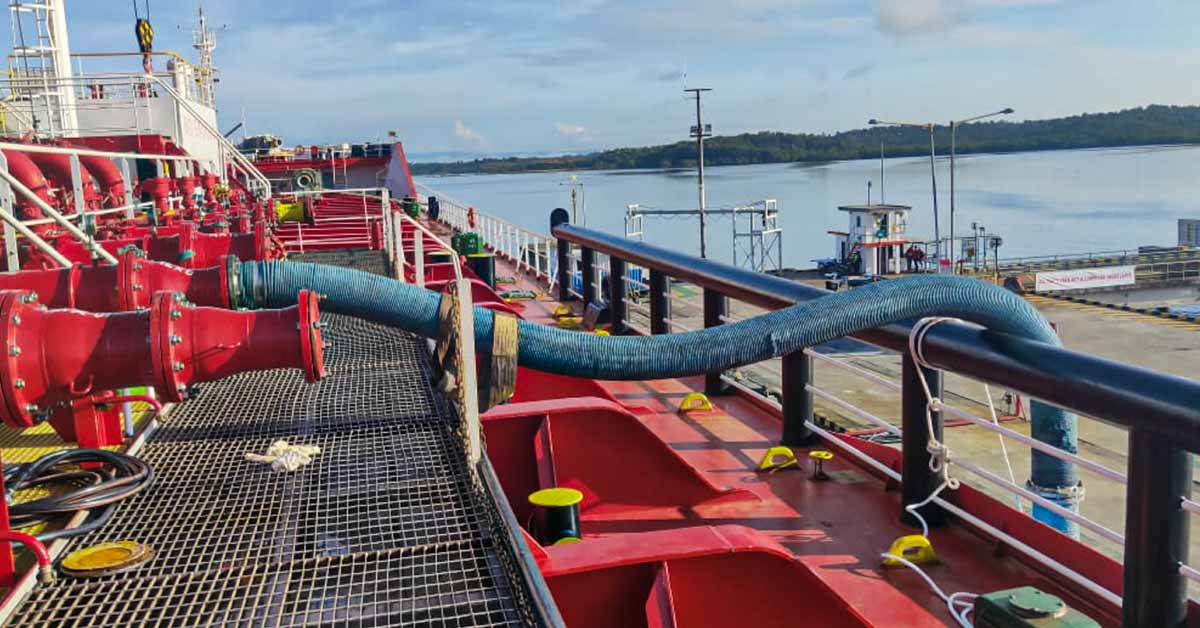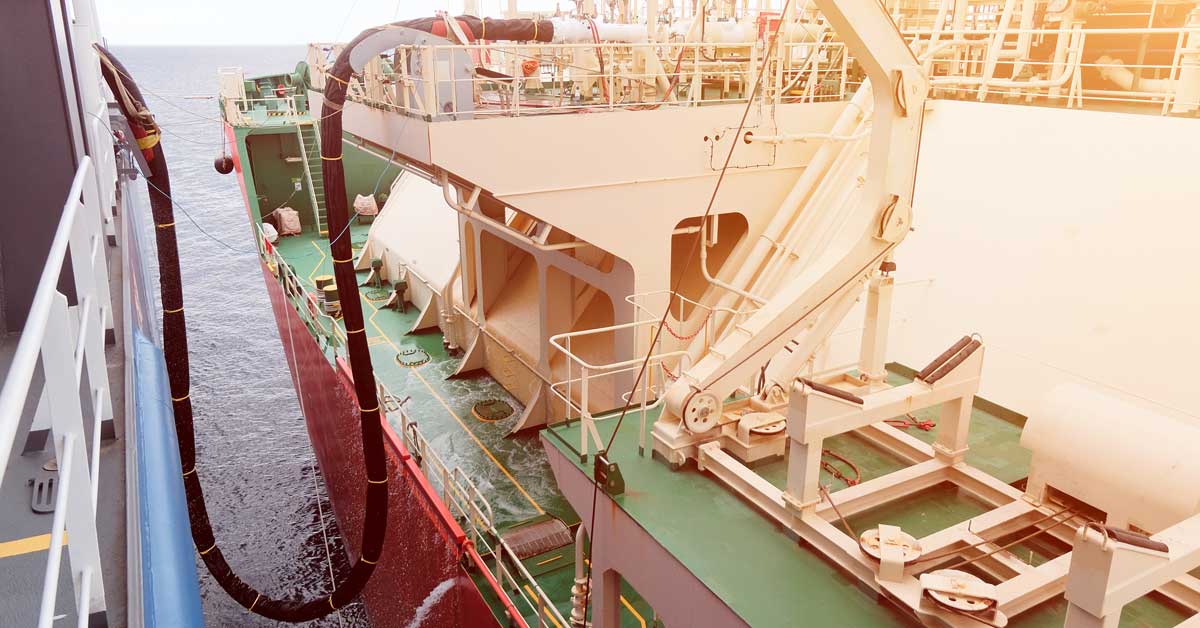3 min read
Confusion Surrounding Bio-Bunkering and IMO's Emissions Goals
ResourceWise
:
Nov 8, 2024 12:00:00 AM

The subjects of decarbonization and low-carbon fuels now sit front and center at global shipping summits. However, uncertainty persists about the International Maritime Organization's (IMO) process to meet updated greenhouse gas (GHG) goals.
The IMO's decarbonization plan calls for the shipping sector to meet a 40% reduction of CO2 emissions by 2030. International shipping should also meet a minimum 5% adoption rate of net-zero or near-zero fuels, emission technologies, and related energy sources. Ideally, companies should strive for a 10% adoption rate.
Over the long term, GHG emissions should be reduced by a minimum of 70%, with an aim of 80% by 2040. Ultimately, the objective is to reach full net-zero emissions by the 2050 benchmark.
Ambiguity on Decarbonization Pathways for Shipping
Despite clear targets, the methods to reach them remain vague.
Excluding biofuels and liquefied natural gas (LNG), alternative fuels tend to carry much higher costs than their traditional counterparts. They are also not sold based on their emissions profiles. This scenario leaves suppliers without any concrete demand indicators and makes buyers hesitant to commit to adopting alternatives.
The IMO has suggested a few measures to address these issues and complement short-term initiatives. For instance, the Carbon Intensity Indicator (CII) focuses on vessel efficiency.
Down the road a bit further, proposed mid-term strategies include:
- A goal-based fuel standard: This would likely involve progressively stricter CO2 targets similar to FuelEU maritime.
- A GHG pricing instrument: Much like the EU Emissions Trading System (ETS), this could entail a carbon levy on emissions.
However, the persistent ambiguity and mixed signals from ongoing discussions have fostered a wait-and-see approach within the industry.
Industry Pressure to Provide Emissions Clarity
While the hesitance to decarbonize and transition to renewables persists, the urgency to take action only continues to grow.
For instance, Ingrid Irigoyen, president of the Zero Emissions Maritime Buyers Alliance (ZEMBA) recently highlighted the importance of acting now. According to a recent statement, several major European e-fuel projects have been suspended in recent months. This apparent pulling back on biofuel production adds pressure on the IMO to provide regulatory clarity and close cost gaps to help expedite the deployment of these fuels. Failure to do so risks losing valuable market opportunities.
In her words:
“[The pulling back on maritime e-fuels production projects] also ramps up pressure on the International Maritime Organization to provide regulatory certainty, close the cost gap, and enable rapid maritime deployment of these fuels ASAP. Otherwise these hard-won opportunities will continue to slip through our fingers.”
— Ingrid Irigoyen, ZEMBA President
Standards should align with the IMO's 2030 goals. But the specifics that member states can agree on remain uncertain.
Additionally, there has been no clear indication of non-compliance costs. If set too low, ships might continue using conventional fuels and absorb the penalty costs rather than transitioning to new fuels. Conversely, there is little information on any incentives for over-compliance.
Get Bio-Bunkering Market Clarity with On-Demand Webinar
The IMO anticipates more information about these points of confusion at the next Marine Environment Protection Committee (MEPC) event in the spring. In the meantime, we will likely see many market players await further information before making any substantial moves.
So, what’s to be done given the confusion? What can shipping companies and fuel producers do to get the information they need on bio-bunkering?
To weather the confusion and ambiguity, ResourceWise's on-demand webinar can help. Here are the details:
 On-Demand Webinar: The Rise of Marine Biofuels
On-Demand Webinar: The Rise of Marine Biofuels
As the biofuels industry experiences significant growth, marine fuels are emerging as a key area for innovation and expansion. The bio-bunkering sector is advancing rapidly, with strategic hubs like Singapore and the Amsterdam-Rotterdam-Antwerp (ARA) region leading the charge in global adoption.
This informative webinar explores the rise of marine biofuels and their promising future in the renewable energy landscape.
Key Topics Include:
- The current landscape of the bio-bunkering industry
- Strategic bio-bunkering locations and market drivers
- Analysis of fuel costs
- Regulations promoting adoption
- Future prospects for the marine fuels market
The event is presented by Ben Salt, Market Analyst and Consultant at ResourceWise who provides expert research and insights on trends, policies, and advancements in bio-bunkering and decarbonization.
For anyone with an interest or stake in shipping and marine fuels, you don’t want to miss this highly informative look into the bio-bunkering market. View the webinar today.





